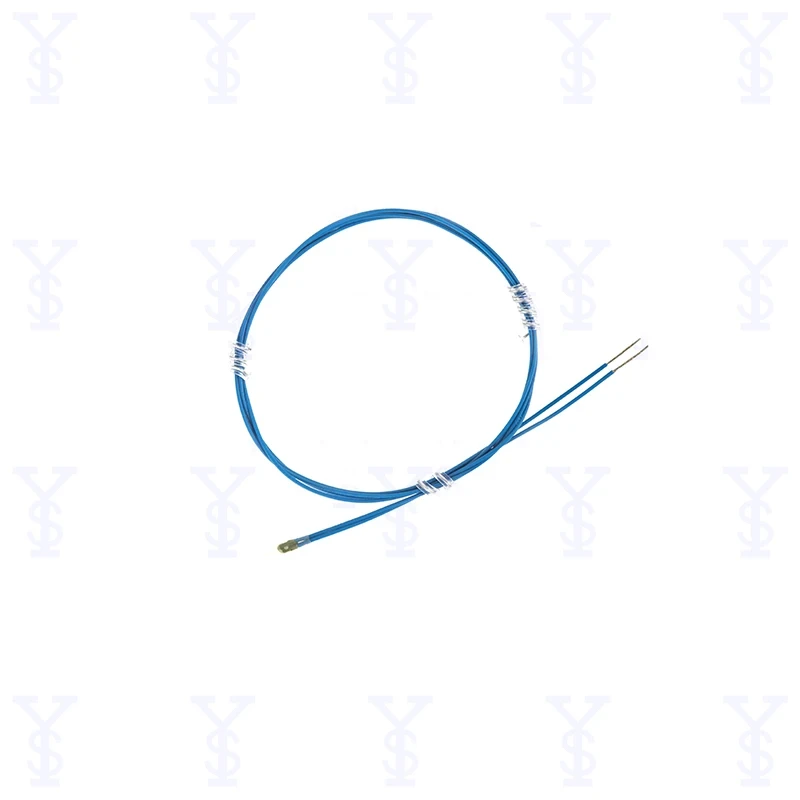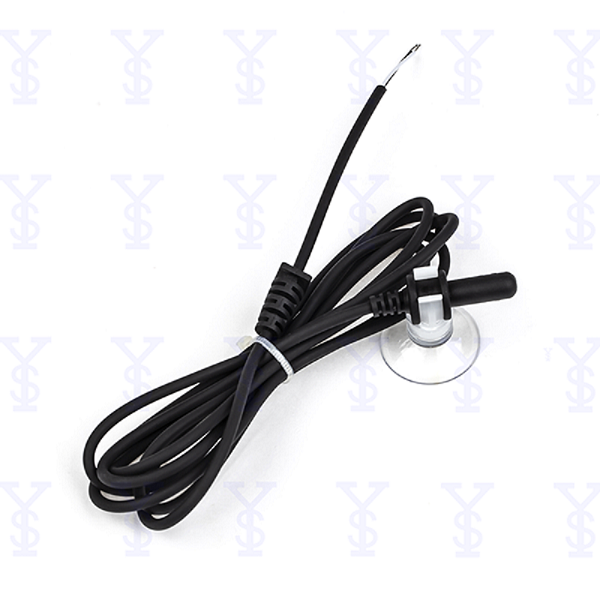Электрондық пошта пішімі қатесі
emailCannotEmpty
emailDoesExist
pwdLetterLimtTip
inconsistentPwd
pwdLetterLimtTip
inconsistentPwd


Buy Electronic Components from China: A Comprehensive Guide
When looking to buy electronic components from China, the vast landscape of suppliers, manufacturers, and marketplaces can be both a blessing and a challenge. Whether you're an individual hobbyist, a small business, or a large corporation, the Chinese market offers a broad range of options, often at competitive prices. This guide aims to provide you with essential knowledge and strategies for sourcing electronic components from China effectively and efficiently.
Understanding the Chinese Electronics Market
China is the world's largest producer and exporter of electronic components. With cities like Shenzhen and Guangzhou at the forefront, the Chinese electronics market is vast and varied. Shenzhen, in particular, is renowned for its electronics markets, where you can find everything from the latest consumer gadgets to tiny electronic parts.
Why Buy Electronic Components from China?
There are several reasons why buyers choose to buy electronic components from China:
1. Cost-Effectiveness: Chinese manufacturers often offer lower prices due to economies of scale and lower labor costs.
2. Variety and Availability: A wide range of components is readily available, from common parts to specialized items.
3. Technological Advancements: Many Chinese companies are at the cutting edge of electronic component technology.
4. Flexible Manufacturing: Chinese suppliers can often accommodate custom orders and small production runs.
Key Markets and Trade Shows
To buy electronic components from China, familiarize yourself with key markets and trade shows. The Huaqiangbei market in Shenzhen is one of the most famous, known for its vast array of electronic goods. Additionally, trade shows like the Canton Fair and the Global Sources Electronics Show are excellent venues to meet suppliers and see new products firsthand.
Finding Reliable Suppliers
When deciding to buy electronic components from China, finding reliable suppliers is crucial. The vast number of suppliers can make this task daunting, but there are several strategies to ensure you partner with reputable companies.
Online Marketplaces
Websites like Alibaba, Global Sources, and Made-in-China are popular platforms to buy electronic components from China. These marketplaces provide access to thousands of suppliers, complete with reviews and ratings from other buyers. However, due diligence is necessary:
1. Check Reviews and Ratings: Look for suppliers with high ratings and positive feedback.
2. Verify Certifications: Ensure the supplier has the necessary certifications for quality and safety standards.
3. Request Samples: Before placing a large order, request samples to evaluate the quality of the components.
Direct Factory Visits
Whenever possible, visiting factories in person can provide valuable insights into the supplier’s operations and quality control processes. This direct approach allows you to:
1. Inspect Manufacturing Facilities: Assess the cleanliness, organization, and technological capabilities of the factory.
2. Meet Key Personnel: Building relationships with the factory managers and staff can enhance communication and trust.
3. Review Production Processes: Ensure that the production processes meet your standards and requirements.
Trade Shows and Exhibitions
Attending trade shows is another effective way to find reliable suppliers. These events allow you to meet multiple suppliers in a short period, compare their offerings, and establish personal connections. Trade shows also often feature the latest innovations and trends in the industry, providing a broader perspective on the market.
Negotiating with Chinese Suppliers
Negotiation is a critical skill when you buy electronic components from China. Understanding cultural nuances and market dynamics can significantly enhance your negotiation outcomes.
Cultural Considerations
Chinese business culture values relationships, known as "guanxi." Building a strong rapport with your supplier can lead to better terms and cooperation. Here are some tips:
1. Respect and Politeness: Always approach negotiations with respect and politeness.
2. Patience: Be patient and allow time for discussions and decision-making.
3. Gift Giving: Small gifts can help build goodwill, though it’s essential to understand the appropriate context and manner for giving gifts.
Key Negotiation Strategies
When negotiating to buy electronic components from China, consider these strategies:
1. Bulk Orders: Larger orders can often secure better pricing.
2. Long-Term Contracts: Committing to long-term partnerships can provide leverage for better terms.
3. Price Comparison: Compare prices from multiple suppliers to ensure competitive pricing.
4. Payment Terms: Negotiate favorable payment terms, such as partial payment upfront and the remainder upon delivery.
Quality Control and Assurance
Ensuring the quality of the components you buy from China is paramount. Poor quality components can lead to product failures and damage your reputation.
Setting Quality Standards
Clearly define your quality standards and communicate them to your supplier. This includes:
1. Detailed Specifications: Provide precise specifications for the components, including materials, dimensions, and performance criteria.
2. Inspection Procedures: Establish procedures for inspecting and testing components before shipment.
3. Certification Requirements: Specify any required certifications, such as ISO, RoHS, or CE.
Third-Party Inspections
Hiring third-party inspection services can provide an extra layer of assurance. These services can inspect the components at various stages of production and prior to shipment, ensuring they meet your standards.
Regular Audits
Conducting regular audits of your supplier’s facilities and processes can help maintain consistent quality. These audits can identify potential issues early and ensure ongoing compliance with your quality requirements.
Logistics and Shipping
Once you decide to buy electronic components from China, understanding the logistics and shipping process is essential for timely and cost-effective delivery.
Shipping Options
There are several shipping options to consider:
1. Air Freight: Fast but more expensive, suitable for smaller, high-value shipments.
2. Sea Freight: More economical for large shipments but slower.
3. Courier Services: Suitable for small, urgent orders.
Customs and Import Duties
Familiarize yourself with the customs regulations and import duties of your country. Ensure all necessary documentation is prepared to avoid delays and additional costs.
Freight Forwarders
Using a freight forwarder can simplify the logistics process. These professionals handle shipping arrangements, customs clearance, and delivery, ensuring a smooth process from supplier to your doorstep.
Leveraging Technology
In the digital age, leveraging technology can streamline the process of buying electronic components from China.
E-Procurement Systems
E-procurement systems can automate the purchasing process, from supplier selection to order management and payment. These systems can provide:
1. Supplier Management: Centralized database of suppliers with performance tracking.
2. Order Tracking: Real-time tracking of orders and shipments.
3. Financial Management: Automated invoicing and payment processing.
Communication Tools
Effective communication is crucial when dealing with suppliers in China. Utilize tools like email, video conferencing, and instant messaging apps to maintain clear and timely communication.
Case Studies: Successful Sourcing from China
Case Study 1: Small Business Success
A small electronics repair shop in the USA decided to buy electronic components from China to reduce costs. By carefully selecting suppliers on Alibaba, verifying their credentials, and negotiating favorable terms, they managed to cut their component costs by 30%. Regular quality checks and third-party inspections ensured that the components met their standards, leading to increased customer satisfaction and business growth.
Case Study 2: Large Corporation Partnership
A large European electronics manufacturer established a long-term partnership with a Chinese supplier. By investing in building a strong relationship and conducting regular audits, they achieved a reliable supply chain for their components. This partnership allowed them to innovate and bring new products to market faster, maintaining their competitive edge.
Challenges and How to Overcome Them
Sourcing electronic components from China is not without its challenges. Common issues include:
1. Quality Control: Ensuring consistent quality can be difficult, but setting clear standards and conducting regular inspections can mitigate this risk.
2. Communication Barriers: Language and cultural differences can lead to misunderstandings. Using professional translators and building strong relationships can improve communication.
3. Logistics Delays: Shipping delays can occur due to various reasons. Planning ahead and using reliable freight services can help manage this risk.
Future Trends in Sourcing Electronic Components
As technology evolves, so does the market for electronic components. Future trends to watch include:
1. Sustainability: Increasing demand for eco-friendly components and sustainable manufacturing practices.
2. Automation: Growing use of automation in manufacturing and supply chain management.
3. Innovation: Continuous advancements in electronic component technology, offering new opportunities for innovation.
Conclusion
Choosing to buy electronic components from China can provide significant advantages in terms of cost, variety, and technological innovation. However, it requires careful planning, thorough research, and strategic negotiation. By following the guidelines and strategies outlined in this comprehensive guide, you can successfully navigate the complexities of the Chinese market and establish a reliable supply chain for your electronic components.

